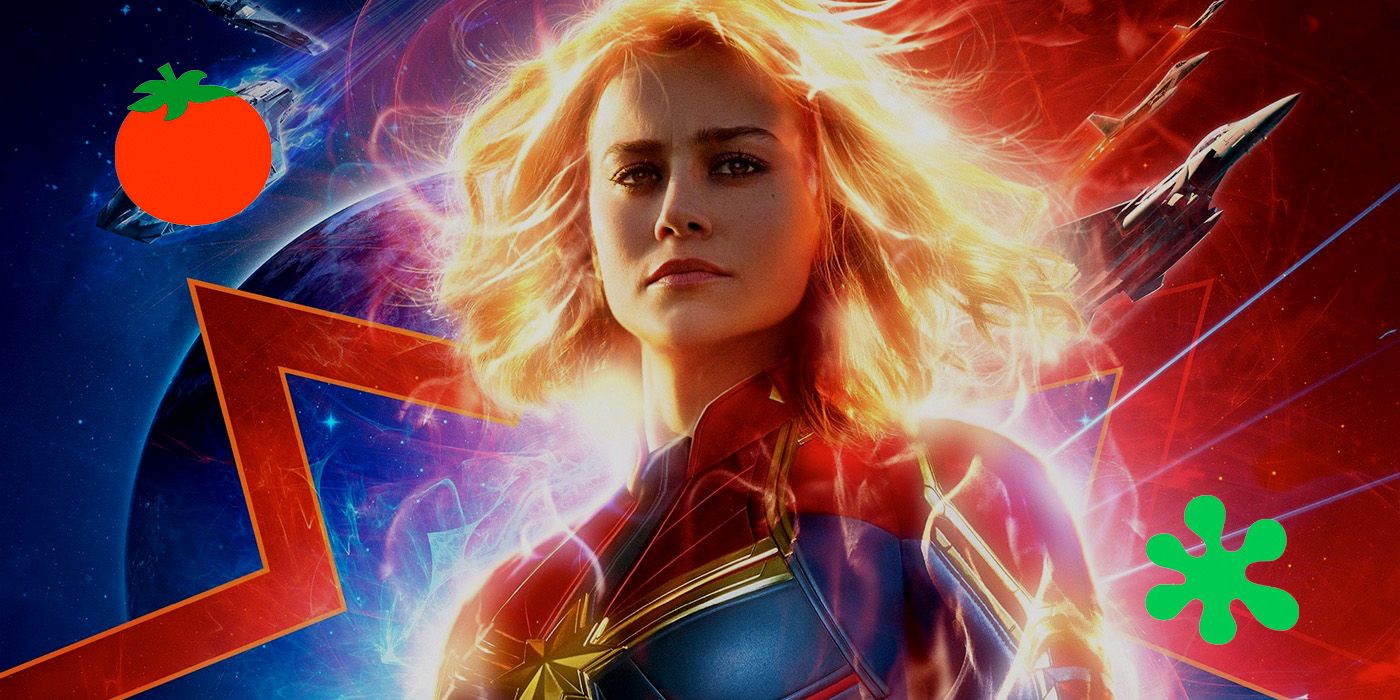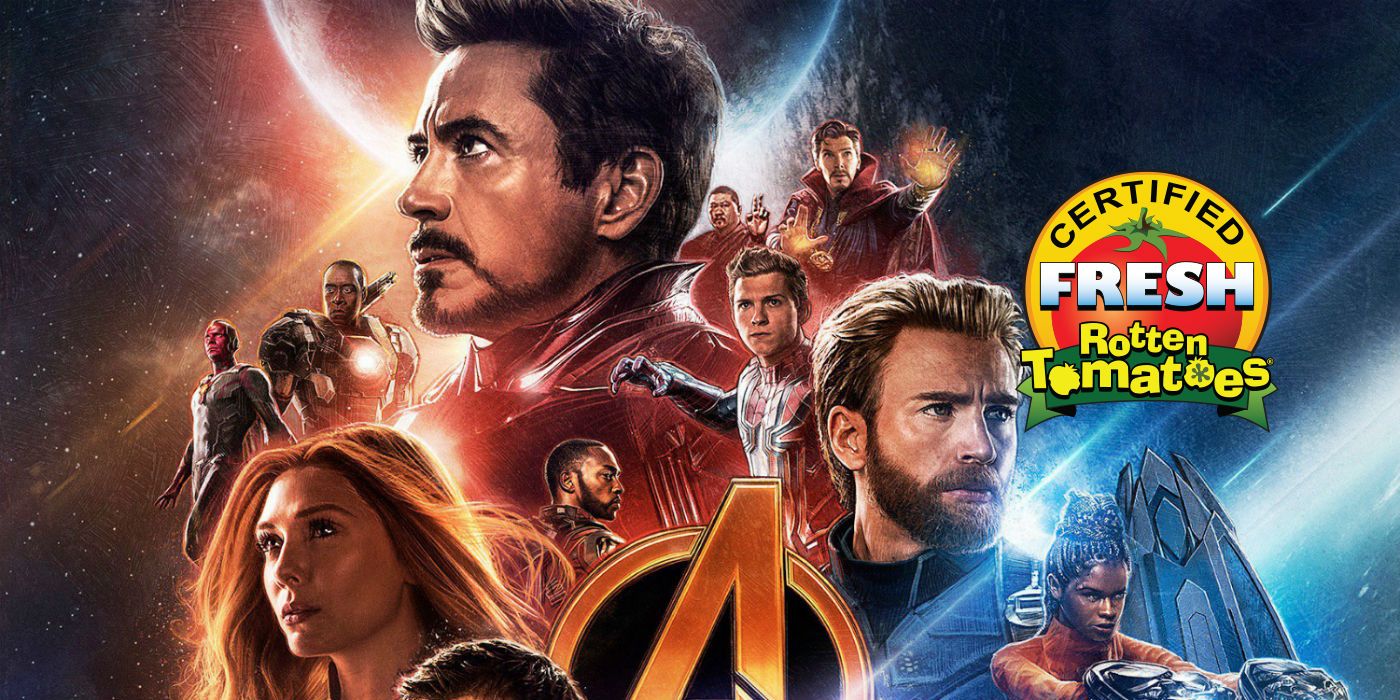Rotten Tomatoes finally made some adjustments to its rating system to respond to fan abuse, but it's made the system even worse than before. Rotten Tomatoes has long been a source of controversy in some circles due to the way its scoring system favors certain types of movies and misrepresents the actual review scores of most films, but more recently fans have started to weaponize the audience rating systems and Rotten Tomatoes' new change only hurts things.
While some rating systems like Metacritic actually seek to parse critical reviews and give a result that is close to representative of the average critic's perspective, or Cinemascore, which polls people on their way out of a theater to get a proper consensus from audiences who actually saw the movie, Rotten Tomatoes takes an entirely different approach. Split into 2 scores, audience and critical, Rotten Tomatoes doesn't seek to represent the true average review, but merely a binary positive/negative consensus. Meaning all reviews are first simplified into a thumbs up or a thumbs down, with scores equivalent to a 6 out of 10 being deemed "fresh" and 5 out of 10 and lower being deemed "rotten." The final score is then the percentage mix of those fresh and rotten scores represented as a single number.
Related: Rotten Tomatoes, Metacritic, IMDb & CinemaScore Explained
The "Tomatometer" often works as a rough indicator, but it has some serious blind spots, namely in the way a 6 and 5 out of 10, which are both only 1 point away from each other, are counted as if they are a 0 or 10 out of 10, respectively, effectively turning a 1 point score difference into a 10 point swing. Not only does it destroy the score of movies that get a lot of 5/10 ratings (obfuscating the difference between average and terrible), but it also falsely equates movies with mostly 6 or 7-star reviews to movies with mostly 8, 9, or 10-star reviews. For example, The Dark Knight has a 94% on the Tomatometer with an average score of 8.58/10, whereas Spy Kids has a 93% with 7.24/10. Most people would agree that Spy Kids is inferior to The Dark Knight, yet both movies are separated by a mere single percentage point and both in the mid-90s on the Tomatometer, but if you extrapolate the average review out, their 86% and 72% scores show a much wider gulf.
And that's just the verified critic Tomatometer. The audience rating system is even more of a mess. Not only does it use the same flawed score calculation, but there's also no verification that the reviewer has even seen the movie, leaving it open to major abuses. This is blatantly obvious in some cases, such as Revenge of the Sith. In 2010 - 5 years after Revenge of the Sith's theatrical release - 32 million additional votes suddenly appeared in its audience ratings (up from a previous total of less than 200,000), dropping the audience score from 85% down to 64%. That's a clear example of nefarious manipulation, and its not the only time it's happened.
This Page: Rotten Tomatoes' Audience Ratings Have Been Abused
Page 2: The "Fix" Only Made Things Worse
Rotten Tomatoes' Audience Ratings Have Been Abused
The more recent controversy has to do with the "want to see" number Rotten Tomatoes used to present before a movie released. Made up of 2 simple options, "want to see" and "don't want to see," the percentage score was a rating of audience enthusiasm for a movie. Since it wasn't an actual movie rating, it was rarely used and typically stood in the high 90s since most people that cared to vote were people already enthusiastic about the movie.
Related: Star Wars Prequel Rotten Tomatoes Scores Have Changed (A Lot) Over Time
As a means of voicing displeasure with Brie Larson and Captain Marvel, a group of people started voting to drop the "want to see" score down into the 30% range. Shortly after, the same thing started happening to Star Wars: Episode IX, as fans who were still disgruntled about The Last Jedi started to sink the sequel trilogy capper's "want to see score." A similar thing happened to The Promise, which is set during the Armenian Genocide when 40,000 one-star reviews flooded in shortly after the premiere. The director blamed it on genocide deniers.
Rotten Tomatoes Changed In Response To Trolls
In response to this abuse, Rotten Tomatoes has made some changes to the way it displays the "want to see" votes. In a blog post, Rotten Tomatoes announced several changes including disabling comments before a movie's release due to an uptick in negative comments as well as replacing the "want to see" percentage with a pure count of people who responded positively. There is no longer an option for fans to even say they don't want to see a movie.
While the post doesn't explicitly say so, the timing and nature of the changes make it very clear that it's in response to the influx of negativity for Captain Marvel. Another change not specified in their post is related to their layout. While the Tomatometer and the average score used to be presented together, average scores can now only be viewed by clicking a "more info" tab, putting an exclusive focus on the flawed fresh/rotten percentage for every movie.
Page 2: The "Fix" Only Made Things Worse
Rotten Tomatoes' Changes Makes Things Worse
Unfortunately, this change makes Rotten Tomatoes even worse as a source for critic and audience opinion. To be clear, the old system was also broken, but it at least presented usable data such that anyone familiar with how the site works could still get valuable information from their metrics. Now, the pre-release "want to see" count provides absolutely no value. A count of people excited for Captain Marvel isn't useful information and it can't be compared to other movies coming out because of differences in audiences and marketing practices and other details.
Related: What Do Rotten Tomatoes & Box Office Really Say About a Movie's Quality?
The fact that over 21,000 users want to see Captain Marvel isn't valuable information, and it can't be compared to something like Avengers: Endgame, which currently shows about half that number, because Captain Marvel's score was brigaded (both by trolls and fans trying to compensate for the score drop). Avengers: Endgame may not even have the same number of people who click "want to see" before it arrives in theaters, but it is sure to quickly eclipse Captain Marvel's box office take. If Rotten Tomatoes wanted to correct the way this feature works, full transparency would have been the better option by displaying both positive and negative responses to the "want to see" function. It would be abundantly obvious that the score had been brigaded in the same way Revenge of the Sith's score was brigaded.
This change could also end up making studios upset with Rotten Tomatoes, as displaying the number of positive responses instead of a mix can reveal an even more significant lack of enthusiasm. Captain Marvel, with all the drama surrounding the score, has only racked up over 20,000 votes (meaning there were presumably close to 60,000 negative responses). Surely smaller films could see only 3 digit responses, which actually generates negative buzz, even though they're hiding any negative reactions. Studios would presumably prefer Rotten Tomatoes displays a 60% score instead of just showing a few hundred people marked as interested while other movies generate thousands of interested fans.
The New Audience Rating System Is Bad For Fandom
It also helps foster a negative environment for fandom. Rotten Tomatoes scores have always been a sore spot for fans of different franchises as they're frequently thrown around, alongside box office numbers, as a means of posturing and comparing movie quality. Now, Rotten Tomatoes has replaced a percentage indicator with a literal point system. Now, instead of merely comparing a nebulous percentage of interested theatergoers, fans will be presented with direct point comparisons to fight about.
Given, there's an element that's inherent to any review aggregator, but presenting fans with a single button press option to express - and compare - enthusiasm for an upcoming release is only pouring gasoline on existing fandom turf wars.
Unfortunately, Rotten Tomatoes has a long way to go to fix many of these problems, and while it's admirable for the platform to seek ways to breed less toxicity in online movie discussions, these new changes are certainly not the best route, especially considering the audience scores on movies like Captain Marvel are going to be brigaded anyway. By depriving angry fans of a meaningless way to express their dissent, they're only more likely to also attack the audience rating after the movie releases.





